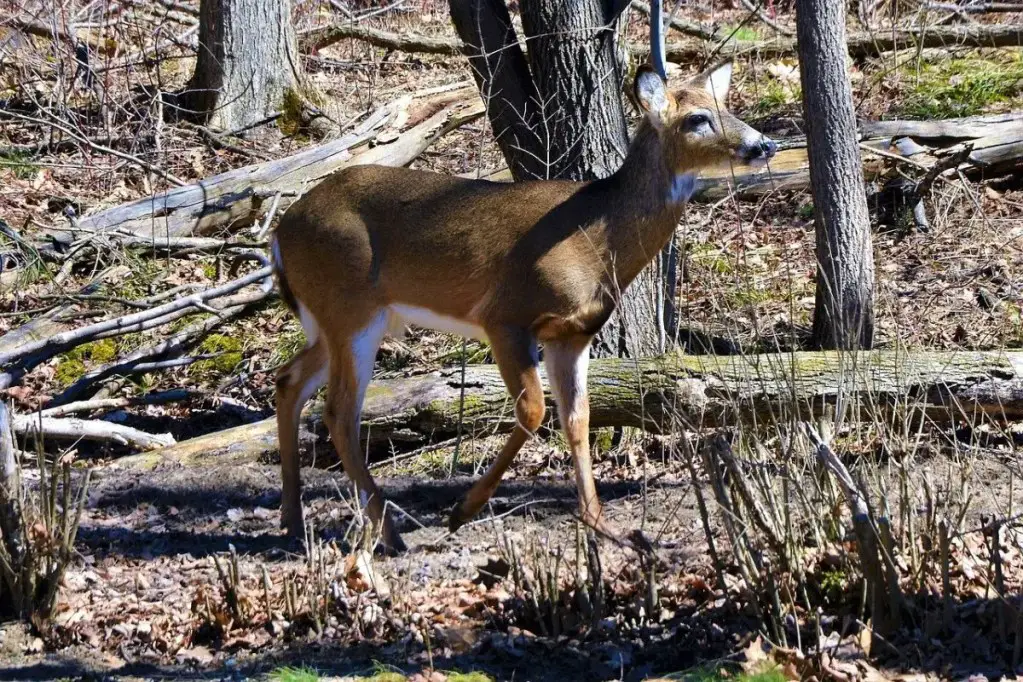The Minnesota Department of Natural Resources (DNR) has issued an emergency rule prohibiting the importation and movement of farmed white-tailed deer into and within Minnesota due to the discovery of Chronic Wasting Disease from a Wisconsin deer farm.
This emergency action, which goes into effect today (October 11, 2021), intends to minimize the spread of chronic wasting disease (CWD) and protect the health of Minnesota’s wild deer. In addition, the temporary ban will allow us to track the movements of confirmed CWD-infected deer and any further exposures.
The Minnesota DNR will collaborate with the Board of Animal Health. It shares concurrent responsibility to regulate farmed white-tailed deer on this initiative thoroughly but efficiently. The DNR requests the farmed deer community’s complete support and cooperation.
The Minnesota DNR is taking this step in reaction to the finding of 387 farmed white-tailed deer from a CWD-positive farm in Wisconsin being transferred to farms in seven states, including Minnesota. Three ranches in Minnesota eventually received five deer from the contaminated property.
Wild Deer Herd Threatened

“This disease poses a clear, immediate, and serious threat to Minnesota’s wild deer, and these actions reflect what’s at stake,” said DNR Commissioner Sarah Strommen. “We are committed to doing everything we can to reduce the continued risk of CWD transmission in Minnesota, including from farmed deer to Minnesota’s wild whitetails.”
This interim mobility ban will give researchers time to follow the migration of deer from the sick farm and assess the risk to other herds. The epidemiological investigations will reveal relationships between known CWD-exposed cows, identify other affected herds, and prevent further transmission from possibly vulnerable herds. In addition, the rule exempts deer from being transported to slaughter and those traveling on a straight path through the state.
Cronic Wasting Disease from a Wisconsin Farm
The Milwaukee Journal Sentinal reported that starting in July 2016, the Maple Hill Farms near Gilman, Wisconsin shipped out 387 deer. Maple Hill sold to deer farms in 18 Wisconsin counties and made sales to buyers in Illinois, Kansas, Minnesota, North Dakota, Oklahoma, and Pennsylvania. The report noted no sales to Michigan.
On September 27, 2021, the Minnesota DNR learned that three Minnesota farms had acquired a total of five white-tailed deer from the contaminated Wisconsin farm. Two of those deer were sent to farms that are no longer in operation. Later, the two animals were returned to Wisconsin.
The other three deer were relocated to an active farm in Minnesota. Two of the deer were slaughtered and analyzed, and neither tested positive for CWD. The third deer is still alive, and the owner is waiting for payment before releasing the animal for testing. The farm where this animal is kept is currently quarantined.
This Emergency action will provide time to understand connections between known CWD-positive farms and identify and prevent the transfer from potentially exposed herds.
Chronic wasting Disease in Other States
The Virginia Department of Wildlife Resources (DWR) is asking hunters in certain parts of Virginia to help them in their efforts to monitor the spread of chronic wasting disease (CWD) in the deer population.
The Alabama Department of Conservation and Natural Resources (ADCNR) Division of Wildlife and Freshwater Fisheries (WFF) is encouraging whitetail deer hunters to utilize the self-service Chronic Wasting Disease (CWD) sampling stations located throughout the state as part of its annual CWD surveillance effort.



